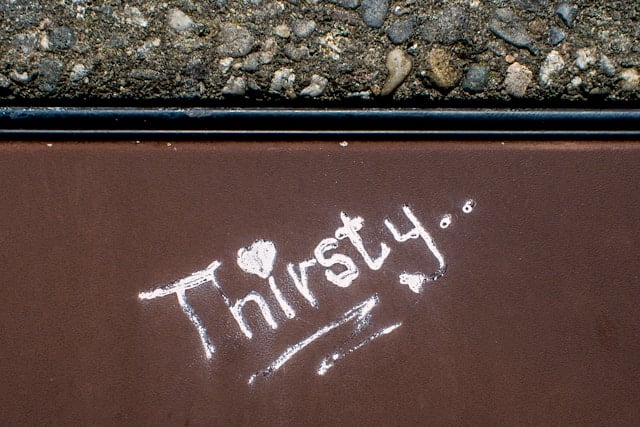Quenching your thirst by drinking water appears to be a straightforward solution. However, various factors contribute to the persistence of this sensation even after properly hydrating. Understanding the intricacies of human physiology reveals that thirst is not solely reliant on fluid intake but is also influenced by factors such as electrolyte balance, hormonal fluctuations, and individual health conditions.
This anomaly, featuring persistent thirst long after consuming water, underscores the nature of the body’s hydration mechanisms. So, let’s learn all about it.
Why Do You Feel Thirsty Even After Drinking Water?
Thirst perception, a complex physiological and psychological phenomenon, is influenced by various factors that intricately shape an individual’s sensation of thirst.
Biological Mechanisms
The hypothalamus is a crucial region in the brain that monitors blood osmolality and volume. As dehydration occurs, increasing blood osmolality, specialized osmoreceptors in the hypothalamus detect these changes and encourage the release of ADH (antidiuretic hormone) from the pituitary gland. ADH supports kidney function by effectively promoting water reabsorption and reducing urine output, thereby conserving fluid.
Simultaneously, the renin-angiotensin-aldosterone system (RAAS) is activated in response to decreased blood volume. Sudden reductions in blood volume stimulate the release of Renin, initiating a cascade that may ultimately lead to aldosterone secretion.
Aldosterone acts on the kidneys to enhance sodium reabsorption, facilitating water retention and elevating blood volume. These intricate hormonal interactions collectively contribute to thirst perception, prompting individuals to seek and consume fluids.
Sensory receptors in the mouth and throat relay information about the viscosity and temperature of ingested fluids, further fine-tuning the regulation of thirst.
Psychological and Behavioral Aspects
Cognitive processes, emotional states, and learned behaviors significantly regulate fluid intake. Cognitive factors, like attention and memory, influence an individual’s awareness of their hydration status and the initiation of drinking behavior.
Emotional states, including stress and anxiety, can modulate thirst perception, and stress-induced hormonal changes may impact fluid balance and alter the sensitivity of thirst receptors. Additionally, past experiences and learned behaviors can shape an individual’s drinking habits. Cultural, social, and environmental cues can influence the timing and frequency of fluid intake, with societal norms and personal preferences contributing to variations in hydration practices.
External stimuli, such as the availability and accessibility of fluids, may also influence behavioral responses to thirst. Environmental factors, such as the presence of water sources or the convenience of hydration options, impact an individual’s likelihood of responding to thirst cues promptly.
Overhydration and Excessive Thirst
Overhydration, also known as hyponatremia, occurs when there is an excess of water in the body relative to sodium levels. This imbalance can dilute the sodium concentration in the blood, causing cells to swell and leading to potentially severe consequences, including nausea, seizures, and, in extreme cases, cerebral edema.
Conversely, excessive thirst can be a symptom of various underlying medical conditions. Diabetes, for example, is characterized by persistent thirst due to increased urination, leading to dehydration.
Hormonal imbalances, such as in diabetes insipidus, can also result in an unquenchable thirst as the body struggles to retain fluids. Psychological factors, including anxiety or certain medications, may contribute to a heightened perception of thirst, even in the absence of physiological dehydration.
Striking a balance between hydration and thirst regulation is crucial for continued wellness and highlights the importance of recognizing and addressing the underlying causes of excessive thirst or overhydration.
Strategies to Alleviate Persistent Thirst
Addressing persistent thirst requires a comprehensive approach that considers both lifestyle modifications and medical interventions. Individuals should prioritize regular hydration by incorporating a consistent and balanced intake of fluids throughout the day. Maintaining an awareness of environmental factors, including temperature and humidity, can help adjust fluid intake to compensate for increased perspiration.
Monitoring and managing underlying health conditions is crucial. For instance, individuals with diabetes should control their blood sugar levels to alleviate excessive thirst associated with the condition. Addressing hormonal imbalances or medications that may contribute to increased thirst is essential.
Optimizing dietary choices can also play a role. Consuming water-rich foods, primarily fruits and vegetables, can positively contribute to overall hydration while providing essential nutrients. Avoiding excessive consumption of caffeinated or sugary beverages, which can contribute to dehydration, is advisable.
Practicing stress-reduction techniques can help manage psychological factors influencing thirst perception. Techniques like mindfulness, meditation, or yoga can contribute to a more balanced emotional state, potentially alleviating heightened sensations of thirst.
In severe cases or when persistent thirst indicates a medical emergency, intravenous (IV) therapy may be necessary. At home IV in Austin allows for the rapid and controlled administration of fluids directly into the bloodstream, ensuring swift hydration in critical situations.
However, it is also important to consult with healthcare professionals to determine the appropriate strategy for alleviating persistent thirst based on individual health needs and circumstances.
Final Words
Feeling thirsty after drinking water indicates more than a simple fluid deficiency. Instead, this may represent a mix of different things, such as an imbalance of minerals in your body or hormonal changes.
As science progresses, we can learn more about how our bodies work and find better ways to stay healthy. So, the mystery of why we still feel thirsty sometimes reminds us that our bodies are pretty complex, and there’s always more to learn about keeping them in good shape.


